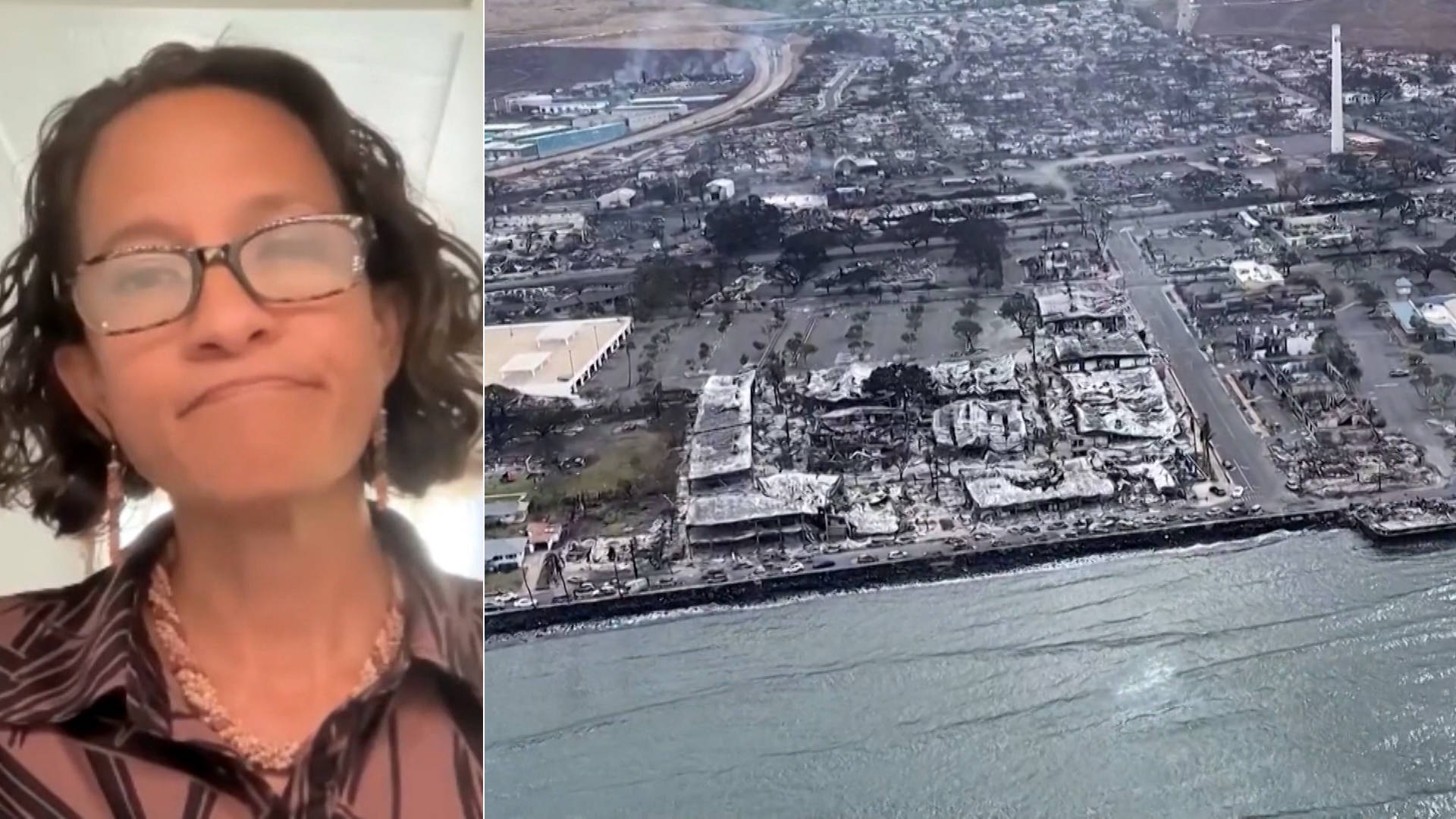With the death toll from the Maui wildfires at 111 and as many as 1,000 still missing, we speak with Hawaiian law professor Kapuaʻala Sproat about the conditions that made the fires more destructive and what’s yet to come for residents looking to rebuild their lives. Decades of neocolonialism in Hawaii have redirected precious water resources toward golf courses, resorts and other corporate ventures, turning many areas into tinderboxes and leaving little water to fight back against the flames.
Now many Hawaiians say there is a power grab underway as real estate interests and other wealthy outsiders look to buy up land and water rights on the cheap as people are still reeling from the loss of their family members, livelihoods and communities. “Plantation disaster capitalism is, unfortunately, the perfect term for what’s going on,” says Sproat, who just published a piece in The Guardian with Naomi Klein.
She is professor of law at Ka Huli Ao Native Hawaiian Law Center and co-director of the Native Hawaiian Rights Clinic at the University of Hawaii at Mānoa School of Law. “The plantations, the large landed interests that have had control over not just the land, but really much of Hawaii’s and Maui Komohana’s resources for the last several centuries, are using this opportunity, are using this time of tremendous trauma for the people of Maui, to swoop in and to get past the law.”
Full Interview Transcript and Audio
![]()
If this doesn't start an indigenous Hawaiian-led revolution, I don't know what will



